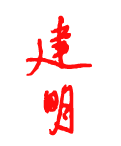Sam's Finale: A Prelude
Fred PutnamSam sat in the wings, on the small backstage chair, waiting for the end of the introduction. This chair, he noticed, was not the usual wooden slatted version (which lacked all back support) or the folding metal ones (which were always icy cold)—this one was actually comfortable; he could relax for a moment.
He couldn’t quite hear the speaker’s words, but the audience seemed appreciative; there was even a ripple of laughter and light applause. Then Sam heard his name—that was clear, at least—and stepped through the side curtains and nearly stopped in amazement at the roar of welcome. He had forgot how big the hall was, or perhaps it just seemed larger now that it was full (and it seemed to be overflowing). Standing room only? Well, that was not for him to figure.
He shook the emcee’s hand (had he met him before?), bowed, flipped back his tails, and sat to play.
The bench was just as he liked it, firm but not hard. The piano was marvelous, probably the best he had ever played. No—it was the best. This was a king, the emperor, of pianos! Steinway had outdone itself.
The touch was firm; the tone mellifluous, an almost human voice. And he played with the joy and delight of knowing that the opportunity to play this instrument, was merely another of God’s many gracious gifts in Christ.
As was his wont, he spoke briefly before each piece, introducing it in a way that drew his listeners’ attention to the composer’s intent, to the music itself, and to its deeper spiritual message, always pointing the audience to the God who was the original and only true Creator of new things, the God who had so richly blessed him with ability, opportunity, friends, family, and—by far more important than all else—with the salvation that comes only through Christ. And his friendly humility and the wisdom of his words turned the audience’s thought from the performer to the music itself, as was (he always thought) only right.
He could barely recall having chosen this program; the music flowed from one piece to the next as though a single hand had written all, and he himself saw and understood and said things that he had not thought before, swept up in the music and the moment.
It was, he thought, almost magic.
And the audience responded in kind—hushed at Chopin, almost laughing at Mozart’s little jokes, awed by Bach—in an outpouring of admiration, respect, and, yes, of love for what they saw and heard.
The final piece was one of his favorites, Beethoven’s Andante Favori, which Sam introduced by saying that Beethoven wrote it as the second movement of the “Waldstein” Sonata, Opus 53, but realizing that it made the sonata too long, he replaced it with a new movement. Sam explained that this piece reminded him of Isaiah’s description of the coming Messiah as “despised and rejected of men” and went on to quote the entire passage from memory. He explained that even though Beethoven replaced it in his sonata, it was one of his favorite pieces; he played it often and himself called it “favorite”: Favori. And just as that which had been rejected became in the end most favored, so his Lord Jesus Christ—who had been reviled to the point of death on the cross, so that he (Sam) and all who believe might be saved—was now exalted to the right hand of God, sitting on the throne of heaven, from whence he would come again with great power and glory, claiming his own.
The audience was silent as he spoke. When the piece ended, the applause thundered and roared: “Bravo!” “Encore!” “Maestro!”—a waterfall, a flood, of approbation.
Feeling far more refreshed than usual after a recital (especially one so demanding), he played his own arrangement of “This is My Father’s World”, and when he finished, sat still, head bowed in thanks at having again been able to testify to the goodness and grace and presence of God in his life.
But this time, the applause faded quickly. He felt a touch at his elbow and, looking up, saw an unknown face which yet he recognized and knew that he had loved all his life. A smile, the words, “Well done, good and faithful servant. Enter now your Master’s joy.”
And Sam knew then that this was only the beginning, and that he had come Home.

